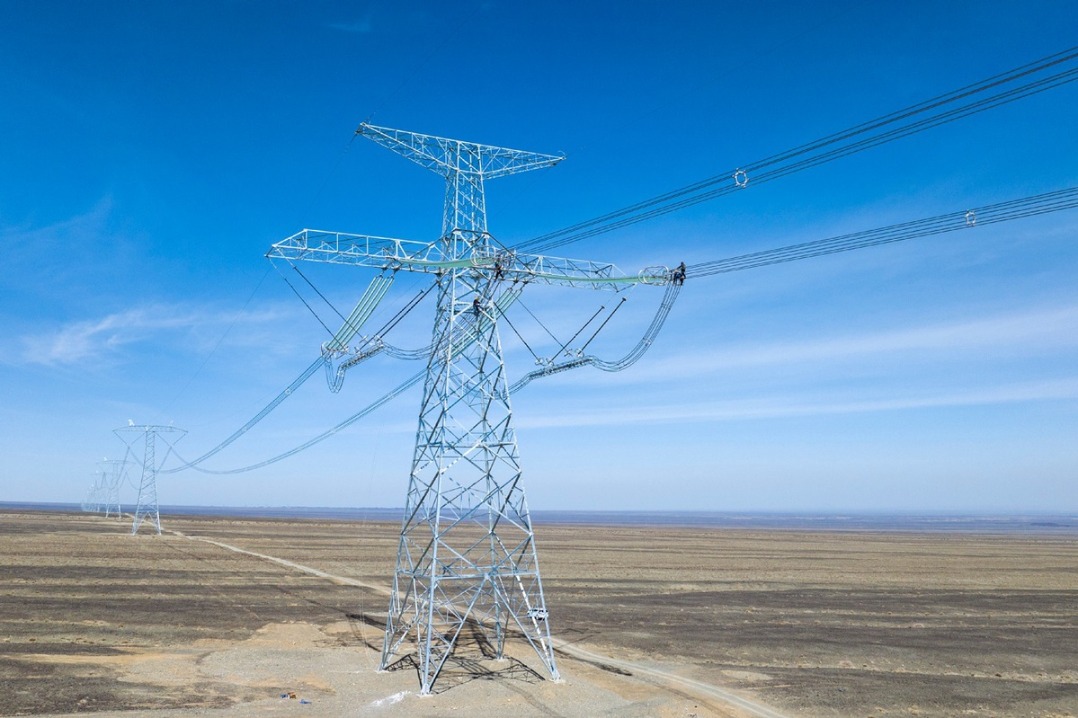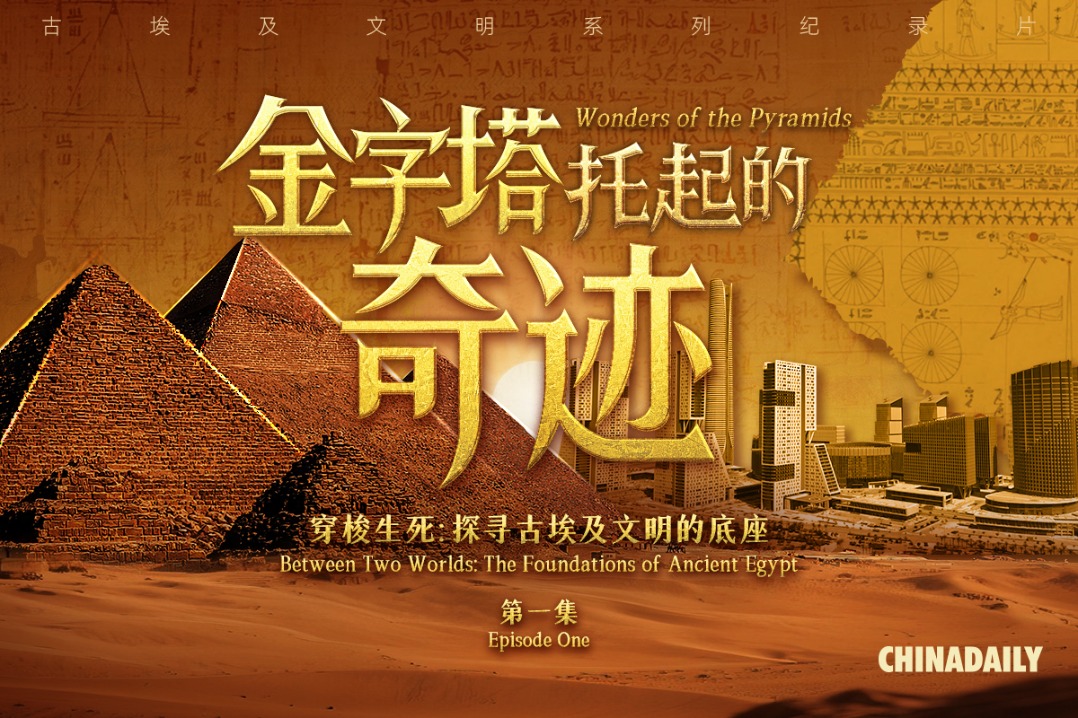Out with the old
Five aspects of concern regarding the transformation of the international order


The post-World War II international order has made big contributions to global peace and development by creating a stable environment and ensuring the proper handling of interstate relations. Although this order is not entirely based on international rules and regulations, particularly in the security domain, it has nonetheless created a predictable world market, and provided development opportunities for all countries.
But we are living in an era in which the transition from this international order to a new one is underway. Achieving a peaceful transition of the international order is an issue of strategic importance that we must address. Some developed countries are driving five alarming changes in the process of the transformation.
First, the shift from "mutually assured dependence" to "mutually assured destruction".
For a long time, countries were committed to a world of "mutually assured dependence". Economic globalization has brought opportunities for development and prosperity. As the ballast of the international order, increasingly close trade and economic exchanges have bound major economies together by creating shared economic interests.
But the attempts of some major countries in recent years to decouple and sever supply chains are cutting the links that ensure interdependence, thereby undermining the foundation for the international order. The frequent adoption of economic policies characterized by "pan-security" indicates that "mutually assured dependence" is no longer a top priority of some developed economies.
Instead, they have begun to assess whether the "mutually assured destruction" mechanism still works, and is capable of ensuring the global security situation does not spiral out of control. Driven by a misperception of insecurity, major powers' behavior logic and its consequences could become more dangerous.
Second, the shift from a "positive-sum game" to a "negative-sum game".
The "positive-sum game" refers to a situation in which economic globalization has facilitated the division of labor and specialization, allowing the rapid flow of production factors, including capital, across borders at low costs, thereby maximizing the overall benefits for all countries.
Despite a certain degree of imbalance, such as the North-South divide, economic globalization, underpinned by a "positive-sum game" mentality, has significantly increased the overall well-being of the world, bringing development opportunities for all countries.
But a "negative-sum game" mentality that puts security first is replacing the "positive-sum game "mentality that prioritizes development. A trade war is a typical "negative-sum game", in which the overall revenue within the system is negative due to conflicts. For the hegemon, the mindset has changed from "What can I gain?" to "What will my opponent lose?" It is an urgent task for the international community to reverse this shift, and prod major powers to think: "What can we create together?"
Third, the shift from "small countries seeking equality" to "big countries seeking 'reciprocity'".
After World War II, the existing international political and economic institutions were established, and the developing countries came to realize that they must unite to seek equality and participate fully in global affairs. For instance, the G77, which was established in 1964, was designed to unite developing countries and strive for a fair international environment for their development. Developing countries advocate that nations, big or small, strong or weak, rich or poor, are all equal members of the international community.
Therefore, it is usually the smaller countries that seek equality, and developing countries that demand a greater say in global affairs. But today, major developed economies, which are the initiators and beneficiaries of the established global order, especially the United States, are now demanding "trade reciprocity" and seeking "reciprocal status" in trade with other countries.
When the current international order was established, the US "bought peace" by opening its market to the rest of world. Through the Marshall Plan and other political and economic plans, it printed US dollars and purchased goods in Europe and other parts of the world, thereby creating peace and order through sharing economic and trade benefits with other countries.
In a sense, this global order could never be of a reciprocal nature. In essence, it is the major powers that created the order and provide public goods, while "locking in" their interests in the hierarchical system. But seeking for "reciprocity" during the first Donald Trump administration and similar practices since then are challenging the basic logic of the origin of this order. In essence, this pursuit of "reciprocity" by major powers is also concealing the nature of inequality.
Fourth, the shift from "seeking certainty under the consensus of major powers" to "upgrading the game of major powers to create uncertainty".
A stable international order is the prerequisite for peace, development and prosperity. Certainty is a necessity for a stable international order, and global governance is the institutional foundation for realizing certainty.
Major countries should behave in a manner befitting their status and shoulder their due responsibilities because what big countries do has huge spillover effects, and can have profound impacts on other countries. However, developed economies, particularly the US, are unilaterally using policy tools to protect their own interests.
Moreover, the hegemonic power is wantonly weaponizing multilateral mechanisms, eroding their legitimate authority. Some developed countries led by the US are abandoning certainty and creating uncertainty, which is the major source of instability in the international order.
In a sharp contrast, China is actively creating certainty and positive spillovers through the Belt and Road Initiative. The initiative not only helps catalyze the economic development of countries involved through trade and investment, but also shares China's successful experience in its modernization drive with them to help them find their own development paths.
Fifth, the shift from a system of governance that "generates money "to one that short of money.
The current global governance system is facing a serious deficit in its capacity to deliver public goods due to a lack of money. As the major creators of the established system, developed economies are increasingly incapable of and unwilling to participate in global governance.
In multilateral organizations such as the United Nations, the World Trade Organization and G20, we hear a lot of voices calling for reform of the global governance system, and there are many discussions about reforming multilateral development banks (such as encouraging the private sector to participate in fundraising activities) and imposing "global taxes" on billionaires, which aim to explore alternatives to the current global governance system.
But the lack of consensus among major countries is the root cause of the failure of the global governance system and the public goods deficit. Raising funds from the private sector can alleviate the funding shortage of the public goods, but only a consensus among major countries can fundamentally solve the financing problems of global governance.
Amid the above changes, China has, in recent years, introduced the Global Development Initiative, the Global Security Initiative and the Global Civilization Initiative. These efforts reflect China's active contribution to global peace and development, aiming to bring greater stability, certainty and constructiveness to the evolving international order.

The author is head of the Department of Global Governance at the Institute of World Economics and Politics at the Chinese Academy of Social Sciences. The author contributed this article to China Watch, a think tank powered by China Daily.
Contact the editor at editor@chinawatch.cn.



































